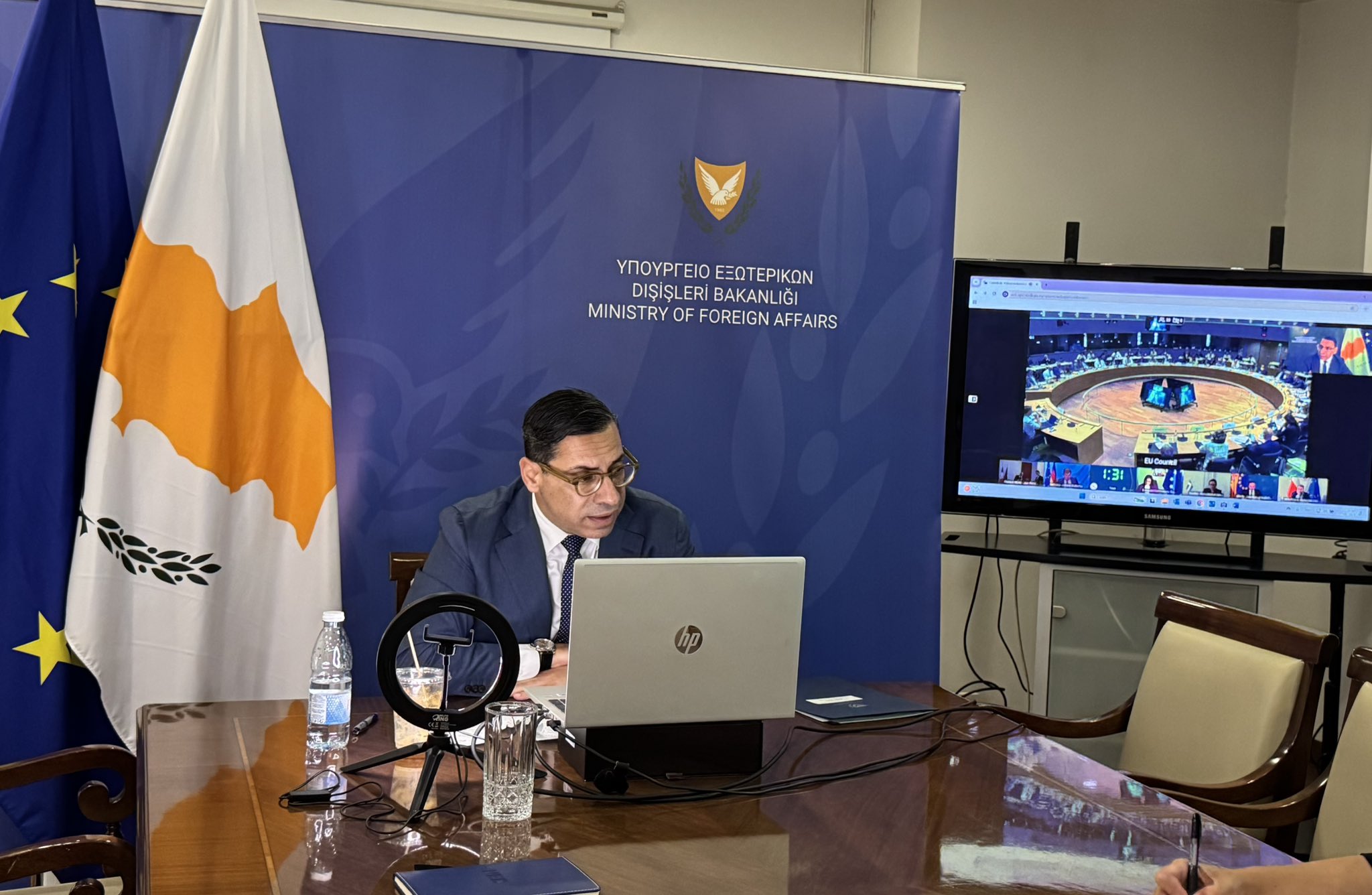The situation in the Middle East “remains extremely critical”, Foreign Minister Constantinos Kombos told an extraordinary meeting of the European Union’s foreign affairs council on Tuesday.
He also told his 26 EU counterparts, via the videoconference, that “the coming days are of decisive importance”, adding that the EU must formulate a clear position and assume an active role.
He said the EU must proceed with substantial engagement, both at an institutional level and via its member states and stressed “the need to stop further escalation and end mutual attacks”.
“Though the conditions for negotiations do not exist today, the EU must prepare the ground for future mediation,” he said, calling on the EU to create a coherent political engagement plan and a strategic position to this end.
He also said that “attention must not be diverted from Gaza”, pointing out that last month, he had proposed that the EU’s foreign policy chief Kaja Kallas “initiate a direct dialogue with Israel, especially on the issue of the amount of humanitarian aid and the number of aid vehicles entering Gaza daily”.
In addition, he spoke about the ‘Estia plan’, wherein Cyprus acts as a hub for EU and third country nationals to be evacuated from conflict zones to the island before travelling onwards to their countries of origin.
He said that since it was first created in 2019, the plan has “facilitated the air travel of thousands of European citizens” evacuating conflict zones in the region via Cyprus.
He also told his counterparts of a growing threat to the security of European citizens in the region, and as such called for “a clear security dialogue, a real-time information exchange, and a fight against disinformation” to combat it.
“This is a threat which is not far from Europe.”
Kombos had requested that the foreign affairs council convene, with President Nikos Christodoulides on Sunday criticising the EU’s response to the first days of the conflict.
“I want to say it publicly. I also expressed dissatisfaction with the fact that the EU was slow to react. We saw a joint statement which came out yesterday after the phone call with [Costa], there were one or two states which disagreed with the wording,” Christodoulides said.
“It is not possible for the EU to claim a geopolitical role, to see all these developments and not to have at the least, at the absolute minimum, a convening of its council of foreign ministers. So, we have requested this from the EU … and I believe that one will be held.”
Iran’s Foreign Minister Seyyed Abbas Araghchi had on Friday called on Cyprus to take “active steps” to “help halt the Zionist regime’s crimes” during a telephone call with Kombos.






Click here to change your cookie preferences